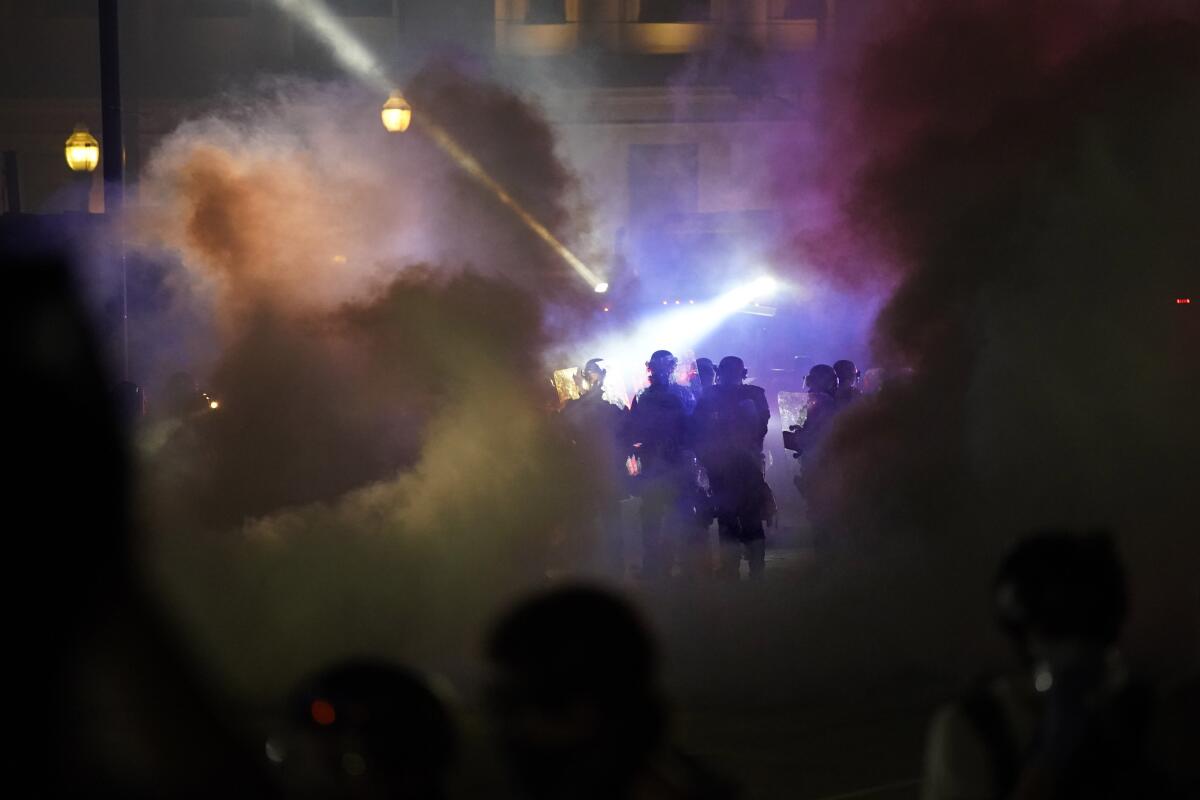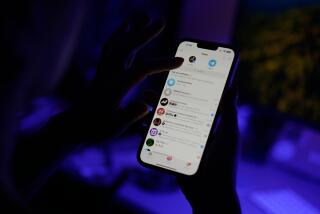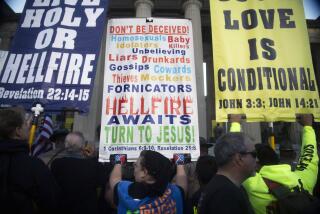Online bans fail to silence U.S. extremists drawn to protests

SILVER SPRING, Md. — After Wisconsin protests over Jacob Blake’s shooting by police turned deadly last week, a member of an anti-government extremist group started posting updates from the scene for comrades in an encrypted chat room.
The group member named “Jake” said “two of my guys” rushed in to help after a gunman later identified as 17-year-old Kyle Rittenhouse shot and killed two people Aug. 25 on a street in Kenosha.
“Jake” was posting on the Keybase messaging platform, where the group migrated after Discord banned it from its instant messaging service in early July.
For months, the nationwide protests against racial injustice and COVID-19 lockdown orders have attracted all manner of extremists using online platforms to plan, coordinate and drum up support for their activities.
Facebook, Discord and other mainstream internet services have banned accounts linked to anti-government extremists, but the recent protests in Kenosha and elsewhere illustrate how easy it can be for them to work around digital roadblocks.
“The whole landscape is too big and each individual player is very big,” said Elon University professor Megan Squire, a computer scientist who studies online extremism. “The number of people you would need to truly police this on the platforms is inadequate right now. The resources just aren’t there.”
Squire has been monitoring the messaging site to which “Jake” and hundreds of other users belong, collecting and reviewing their messages.
One of the posts about the Kenosha shooting said one of Jake’s “guys” provided unspecified medical care while the other was “escorting the kid to safety,” presumably referring to Rittenhouse.
Later, other members of the self-described “private intelligence agency” discussed whether the violence in Kenosha would be the catalyst for a civil war, according to a screenshot taken by Squire.
“Doubt it,” the group’s anonymous founder wrote. “Things like that take time, which is what is happening now.”
“Ah. Gotcha,” a user named “warhammer_actual” replied. “This is just one part of that escalation. Makes sense.”
On June 30, Facebook announced that it had removed hundreds of Facebook and Instagram accounts, pages and groups linked to the anti-government “boogaloo” movement.
Boogaloo supporters, who use the loose movement’s name as a slang term for a second civil war or collapse of civilization, frequently show up at protests armed with rifles and wearing Hawaiian shirts under body armor.
To avoid the ban, some boogaloo groups relaunched pages under innocuous sounding names. A day before the Kenosha protest shooting, a post on a private Facebook group with more than 2,000 members called “CNN Journalist Support Group” said “bois of the movement” would be “making their presence felt” in the city, wearing “regular clothes” or combat apparel instead of “luau” shirts.
“These are well known bois who no longer can post to social media due to the purge,” said the post, according to a screenshot collected by the Tech Transparency Project, a research initiative of the nonprofit Campaign for Accountability.
Facebook CEO Mark Zuckerberg said the company made a mistake in not removing the page of a militia group that called for armed civilians to enter Kenosha amid the violent protests that erupted after police shot Blake, a Black man, in the back seven times, leaving him paralyzed.
The page for the “Kenosha Guard” violated Facebook’s policies and had been flagged by “a bunch of people,” Zuckerberg said in a video posted last Friday on Facebook.
An Aug. 12 report by the Tech Transparency Project found that Facebook’s “slow and ineffective response” has allowed many boogaloo groups to avoid detection using simple re-branding techniques.
Project director Katie Paul said at least four private Facebook groups for “boogaloo” supporters used their accounts to promote plans to attend the protests in Kenosha before the shooting.
“This is systematic failure. It’s not a one-off incident,” Paul said. “Whatever Facebook’s measures are, they are not effective and they are not being properly applied.”
The boogaloo movement has been linked to a recent string of domestic terrorism plots, including the arrests of three Nevada men accused of conspiring to incite violence during protests in Las Vegas.
Authorities also found a boogaloo connection in the fatal shooting of a federal security officer outside an Oakland courthouse and the ambush killing of a California sheriff’s deputy. Steven Carrillo, an Air Force sergeant charged with the killings, was tied to the boogaloo movement from social media posts and phrases he wrote in his own blood.
Ryan Balch, an Army veteran who spent time with Rittenhouse on the night of the shooting, said as many as 32 boogaloo adherents were in Kenosha that day. Balch described himself as a “Boog Boi” in a series of Facebook messages to the Chicago Sun-Times, but he said Rittenhouse had no connection to the boogaloo movement.
“Agitators did seem to focus on him because he seemed like an easier target than the rest of us,” Balch said, according to the newspaper.
The group that Squire has been tracking on Keybase says it doesn’t promote the boogaloo or any other movement, but she said that denial rings hollow based on her review of their communications on the messaging platform.
“It’s pretty obvious that they’re just saying that because they’re worried they’re going to be removed from the service,” she said. “In their minds, they’re planning for this war.”
The user named “Jake” said he didn’t see anybody in Kenosha “repping the redacted,” an apparent reference to the boogaloo. “Most people had all their patches removed,” he wrote.
“Stay frosty bois,” wrote another user, named “vbboisrep.”
Squire said the group had as many as 1,500 members on Discord before its ban. It has roughly 500 members on Keybase, where it has separate channels for discussing recent “riots” in Minneapolis, Chicago, Atlanta and other cities.
Stamping out the online footprints of extremist groups is ”basically impossible unless the companies get together, unless there is a clear mandate to remove this stuff en masse,” Squire said.
But the bans like the ones imposed by Facebook and Discord typically shrink the groups’ membership and audience when they move to a new platform, she added.
“So it’s still worth doing,” Squire said.
More to Read
Sign up for Essential California
The most important California stories and recommendations in your inbox every morning.
You may occasionally receive promotional content from the Los Angeles Times.










